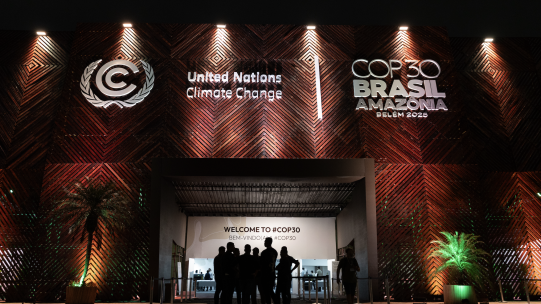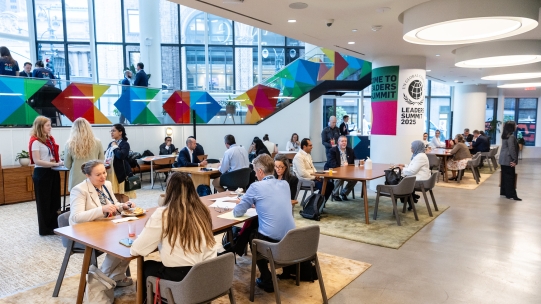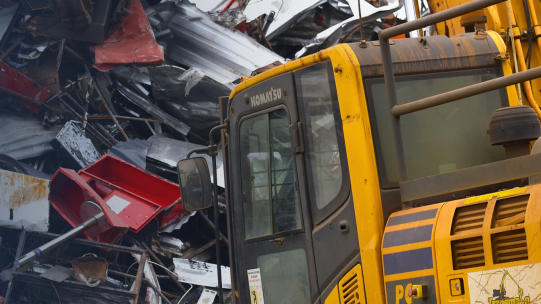Companies in Global Compact Nepal offer women, children a chance to reach new heights
Read more
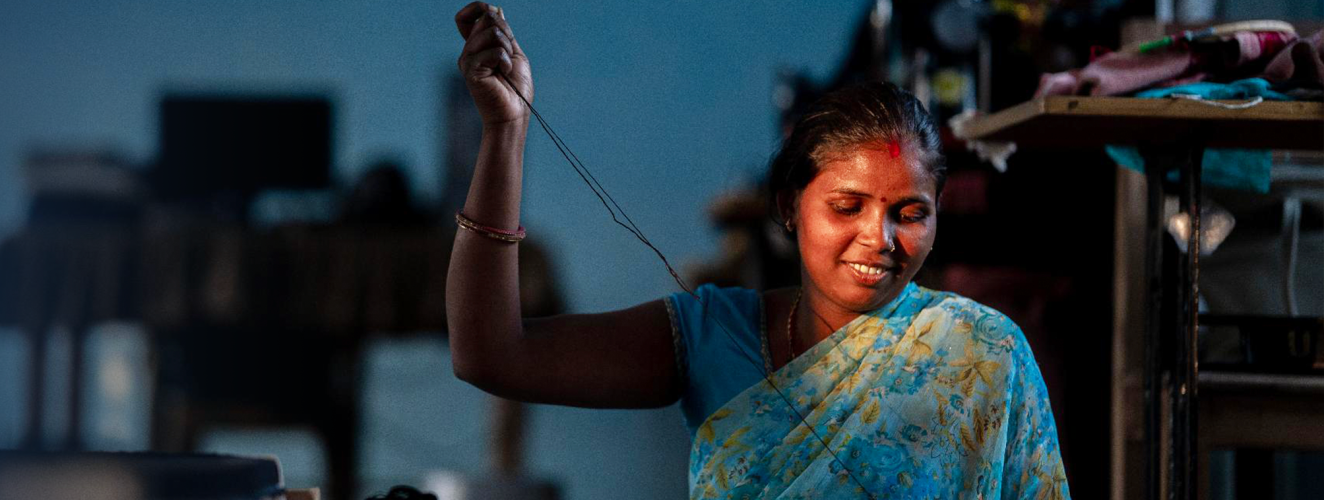
To be a young girl in Nepal has more than its share of challenges.
Known for its towering mountains and breathtaking vistas, Nepal grapples with child marriage, child labor and persistent gender inequality.
Participating companies of the UN Global Compact are using their businesses to tackle these issues and empower their workers, their families and their communities.
Danfe Works Enterprises Nepal, which joined the Global Compact in 2019, works to build meaningful impact, ethical production and sustainability into its business responsibilities.
Most of the workers at Danfe belong to marginalized communities and of those, most are from the Dalit caste known as “untouchables.” Nearly 14 per cent of Nepal’s population is Dalit, subject to discrimination, violence and oppression and denied decent access to education, property, employment, health care, legal protection and more, according to a recent report by Amnesty International.
One of those workers is Saraswoti Sada, who was a child bride married at age 15. Child marriage has been illegal in Nepal for more than six decades, but the practice still persists and an estimated 37 per cent of girls are wed before they turn 18.
Shy and introverted before working at Danfe, she had been abused by her alcoholic husband and was shouldering the burden of raising three children.
Now 30, Sada took the step of breaking the social norm by seeking to earn her own living. She was trained by SAATH, an NGO that works with marginalized communities. With financial support from Danfe, SAATH aims to empower women and youths through entrepreneurial training and skills development.
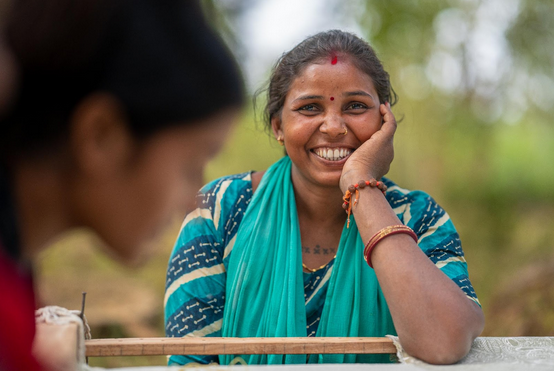
Saraswoti Sada, 30, works at Danfe. She was a child bride and comes from a marginalized Dalit community.
"Tailoring is my life line, my bread and butter,” Sada said.
Along with supporting marginalized communities and promoting fair pay, Danfe utilizes local raw materials and indigenous skills of artisans from rural communities to craft and market designer “Made in Nepal” clothing and accessories.
Participation in the Global Network Nepal helped the company along its path to sustainability, it said, and it recently participated at the Asia Pacific Forum on Sustainable Development Goals
Danfe works with mostly natural fabrics and natural or azo-free dye, and it features a collection of “Zero Waste” product lines that utilize its waste. It is making yarn from waste fabric, and more than 80 per cent of its packaging materials are from sustainable material or biodegradable bags.
Also in Nepal, Formation Carpets, founded in 1990, implemented various social programs through its sister company, NGO Hoste Hainse, including a day care and preschool for employees' children, hygiene initiatives, health insurance, retirement programs and paid maternity leave to empower its all-female workforce.
Hoste Hainse also started to become involved in providing full/partial scholarships for them to attend school with proceeds of Formation Carpets business.
“We are also trying to work with other like-minded organizations, institutions to collaborate and pitch the idea of sustainable production that is also profitable,” said Prajina KC, production manager at Formation Carpets. “We envision working with local municipalities on such projects in the near future.”
The founder of Formation Carpets, Sulochana Shrestha Shah, has been a leading advocate in her country’s campaign against child labor. She launched a company called GoodWeave that spearheaded efforts to certify carpet manufacturers adhere to child labor-free practices.
GoodWeave inspects and certifies carpet companies and works to extricate children from underage labor in the hand-knotted rug industry by providing rehabilitation, education and family reunification opportunities. Its certification program allows compliant companies like Formation Carpets to display a certified logo, affirming their products are free from child labor after rigorous inspection.
"I began working in a carpet factory at age 9 due to financial constraints,” said a young intern at Formation Carpets. “GoodWeave Certification Nepal rescued me and provided a decade of education and support.”
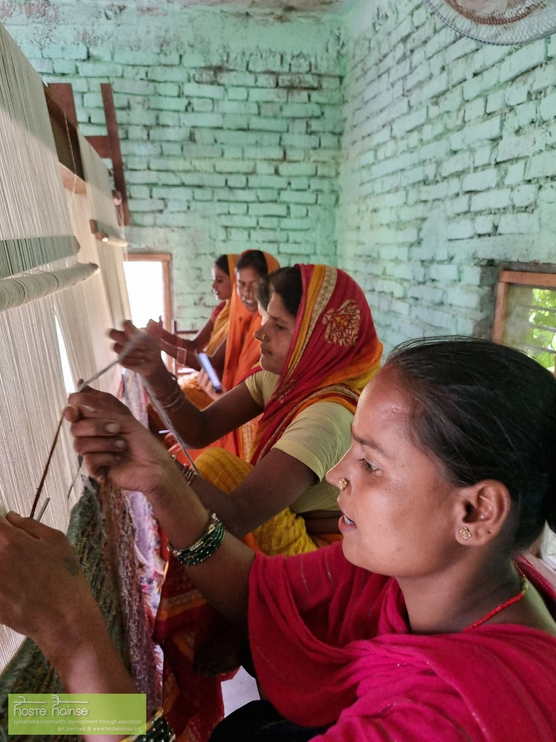
Formation Carpets offers training to equip women like these, pictured, with the skills needed to become proficient carpet weavers.
In 2023, GoodWeave Certification Nepal joined Global Compact Nepal, while Formation Carpets was a founding member, integrating the Ten Principles of human rights, labor standards, environmental stewardship and anti-corruption into their operations and fostering sustainability throughout their supply chain.
Formation Carpets sees itself challenging stereotypes and setting a benchmark for inclusive employment practices in Nepal to catalyze broader societal change.
“The journey of Formation Carpets serves as a beacon of possibility, demonstrating the profound impact of corporate social responsibility and gender equality,“ said Shah, “fostering a ripple effect that promises to redefine workplace dynamics and societal norms.”
